Frequently Asked
Questions
At Virtuous Wellness Center, our physical therapists are highly educated, licensed health care professionals who are dedicated to helping their patients get results.
Physical Therapy FAQs
Physical therapy is a medical, hands-on approach to relieving pain and restoring function. Physical therapists are medical experts in musculoskeletal and neurological conditions and work closely with physicians. Our physical therapists evaluate your movement patterns, identify the cause of your pain, and work to eliminate it.
While every patient’s condition and pain is unique, your physical therapist will use a variety of gentle hands on techniques, exercises and equipment to relieve pain quickly and restore your function to optimum levels. The overall goal is to restore pain-free mobility and function and to prevent the injury or pain from reoccurring.
One of the great benefits of physical therapy is that it makes use of non-invasive and drug free treatments to get to the root cause of your condition.
Working with you and your doctor, we can discuss your options and help determine if physical therapy will be the right choice for you. Contact us today to discuss your current condition and even set up a free consultation if you choose.
Please have your prescription and insurance card available when you call. This will allow us to verify your insurance benefits and provide you with an estimate of coverage.
To bring on your first visit:
- A referral (if needed) for physical therapy from your referring physician, CRNP, or PA.
- Insurance information (we will take a copy of your card).
- Fill out the patient forms on our website then submit them before your appointment.
- In case of an automobile accident or worker’s compensation claim, also bring any case manager or insurance adjuster contact names, phone numbers and claim number.
- Please arrive 15 minutes early to complete any remaining paperwork, so you can maximize your time in your evaluation.
- Please wear comfortable clothing that allows easy access to your problem areas.
We accept cash, check, debit card, and credit card. We are happy to discuss payment plan options, as well.
Yes, in most cases it does. Our office will be happy to assist in contacting your insurance company and determining your coverage based on your individual policy. For more information, visit our insurance plan page and please do not hesitate to contact our office. We do offer different payment options for your convenience.
During your first visit you can expect the following:
- You will arrive at your appointment with your paperwork completed online – see the paperwork or forms link on our website.
Our front desk staff will go over all your paperwork as well as your insurance coverage. You will provide us with your referral for physical therapy if you have one. We will copy your insurance card and process any payment required by your insurance company.
- Our Physical Therapist will see you for your initial evaluation.
- The therapist will discuss the following:
- Your medical history.
- Your current problems/complaints.
- Pain intensity, what aggravates and eases the problem.
- How this is impacting your daily activities or your functional limitations.
- Your goals with physical therapy.
- Medications, tests, and procedures related to your health.
- The therapist will then perform the objective evaluation which may include some of the following:
- Palpation – touching around the area of the pain/problem. This is done to check for the presence of tenderness, swelling, soft tissue integrity, tissue temperature, inflammation, etc.
- Range of Motion (ROM) – the therapist will move the joint(s) to check for the quality of movement and any restrictions.
- Muscle Testing – the therapist may check for strength and the quality of the muscle contraction. Pain and weakness may be noted. Often the muscle strength is graded. This is also part of a neurological screening.
- Neurological Screening – the therapist may check to see how the nerves are communicating with the muscles, sensing touch, pain, vibration, or temperature. Reflexes may be assessed as well.
- Special Tests – the therapist may perform special tests to confirm/rule out the presence of additional problems.
- Posture Assessment – the positions of joints relative to ideal and each other may be assessed.
The therapist will then formulate a list of problems you are having, and how to treat those problems. A plan is subsequently developed with the patient’s input. This includes how many times you should see the therapist per week, how many weeks you will need therapy, home programs, patient education, short-term/long-term goals, and what is expected after discharge from therapy. This plan is created with input from you, your therapist, and your doctor.
Treatment sessions typically last 30 to 60 minutes per visit.
This is highly variable. You may need one visit or you may need months of care. It depends on your diagnosis, the severity of your impairments, your past medical history, etc. You will be re-evaluated on a monthly basis and when you see your doctor, we will provide you with a progress report with our recommendations.
Flare ups are not uncommon. If you have a flare up (exacerbation), give us a call. We may suggest you come back to see us for physical therapy or a massage, return to your doctor, or simply modify your daily activities or exercise routine.
Massage Therapy FAQs
Maryland based insurance companies do not cover massage therapy. Some out of state plans do include massage benefits. If your insurance company offers massage benefits we require payment in full at the time of service and will provide you with the proper statement you can submit for reimbursement. For our clients who do not have massage benefits we do accept HSA and FSA as a form of payment with a doctor’s prescription.
Massage and bodywork can help release chronic muscular tension and pain, improve circulation, increase joint flexibility, reduce mental and physical fatigue and stress, promote faster healing of injured muscular tissue, improve posture, and reduce blood pressure. Massage and bodywork is also known to promote better sleep, improve concentration, reduce anxiety and create an overall sense of well-being.
A typical full-body session will include work on your back, arms, legs, feet, hands, head, neck, and shoulders. We also specialize in working on specific areas to help alleviate chronic pains and current injuries.
Our therapist use a variety of techniques to meet the needs of the session. We are experts in Swedish, deep tissue, trigger point release and myofascial release.
We allow for the full duration that you pay for. We offer 30 minute, 60 minute and 90 minute sessions. Our therapists are trained to recommend which will be the most beneficial for your needs.
You will be properly draped at all times to keep you warm and comfortable. Only the area being worked on will be exposed per Maryland law.
Your massage or bodywork session will take place in a warm, comfortable, quiet room. Soft music may be played to help you relax. You will lie on a heated table especially designed for your comfort.
Everyone’s body responds differently to bodywork. Sometimes it is appropriate to be interactive during a therapeutic massage to give feedback to the therapist. It is common to have discomfort during and after massage as we are provoking the tissue to promote natural healing. The discomfort should always be tolerable, please let your therapist know if it becomes too much.
Dry Needling FAQs
Dry needling, also known as trigger point dry needling and myofascial trigger point dry needling, is a procedure that treats myofascial pain.
A patient may experience different sensations when receiving this treatment. Muscle soreness, aching and a muscle twitch when a needle is inserted is considered to be a good sign. The technique is dependent on your condition. The needles may be placed deeply or superficially, for seconds or up to 10- 15 minutes.
Dry needling is almost always used as a part of an overall plan designed by our Physical Therapist. Dry needling is used to increase range of motion that may be limited due to muscle tightness or scar tissue. Dry needling may also treat: Muscle pains, disk problems, whiplash, headaches, TMJ, joint problems and tendonitis.
Pregnant women
People who are not able to understand the treatment
People who are very afraid of needles
Disclaimer: Any patient who is considering dry needling should consult his or her doctor first. This is particularly true for people taking blood thinners and people who are only recently recovering from surgery.

